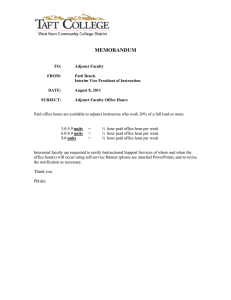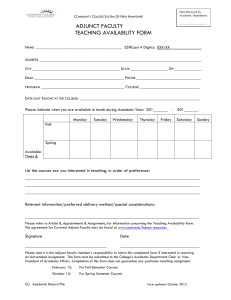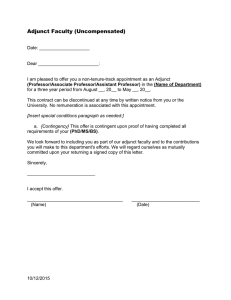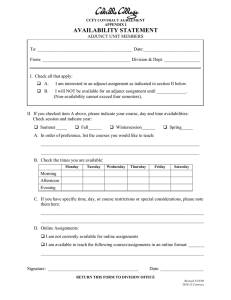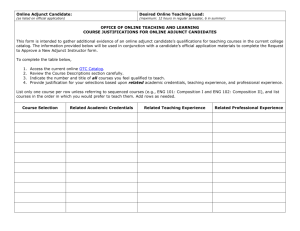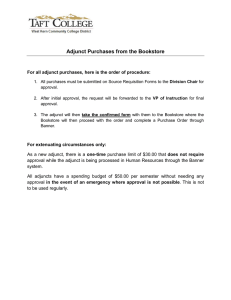10 Things I Wish I Had Known Before I Started...
advertisement
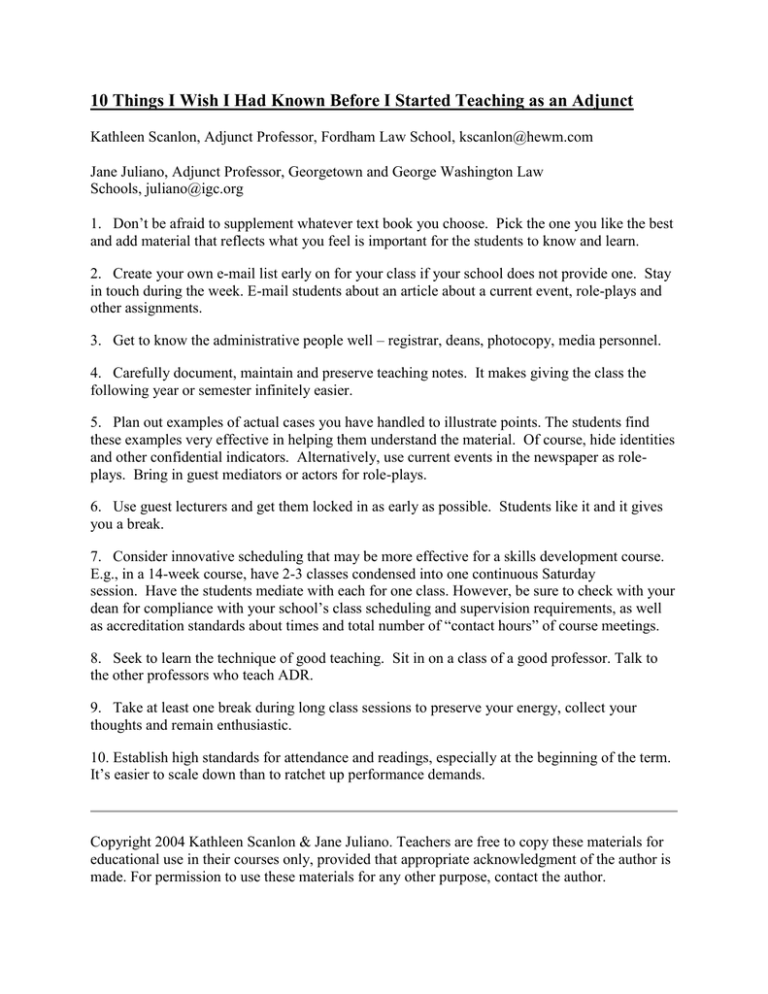
10 Things I Wish I Had Known Before I Started Teaching as an Adjunct Kathleen Scanlon, Adjunct Professor, Fordham Law School, kscanlon@hewm.com Jane Juliano, Adjunct Professor, Georgetown and George Washington Law Schools, juliano@igc.org 1. Don’t be afraid to supplement whatever text book you choose. Pick the one you like the best and add material that reflects what you feel is important for the students to know and learn. 2. Create your own e-mail list early on for your class if your school does not provide one. Stay in touch during the week. E-mail students about an article about a current event, role-plays and other assignments. 3. Get to know the administrative people well – registrar, deans, photocopy, media personnel. 4. Carefully document, maintain and preserve teaching notes. It makes giving the class the following year or semester infinitely easier. 5. Plan out examples of actual cases you have handled to illustrate points. The students find these examples very effective in helping them understand the material. Of course, hide identities and other confidential indicators. Alternatively, use current events in the newspaper as roleplays. Bring in guest mediators or actors for role-plays. 6. Use guest lecturers and get them locked in as early as possible. Students like it and it gives you a break. 7. Consider innovative scheduling that may be more effective for a skills development course. E.g., in a 14-week course, have 2-3 classes condensed into one continuous Saturday session. Have the students mediate with each for one class. However, be sure to check with your dean for compliance with your school’s class scheduling and supervision requirements, as well as accreditation standards about times and total number of “contact hours” of course meetings. 8. Seek to learn the technique of good teaching. Sit in on a class of a good professor. Talk to the other professors who teach ADR. 9. Take at least one break during long class sessions to preserve your energy, collect your thoughts and remain enthusiastic. 10. Establish high standards for attendance and readings, especially at the beginning of the term. It’s easier to scale down than to ratchet up performance demands. Copyright 2004 Kathleen Scanlon & Jane Juliano. Teachers are free to copy these materials for educational use in their courses only, provided that appropriate acknowledgment of the author is made. For permission to use these materials for any other purpose, contact the author.
